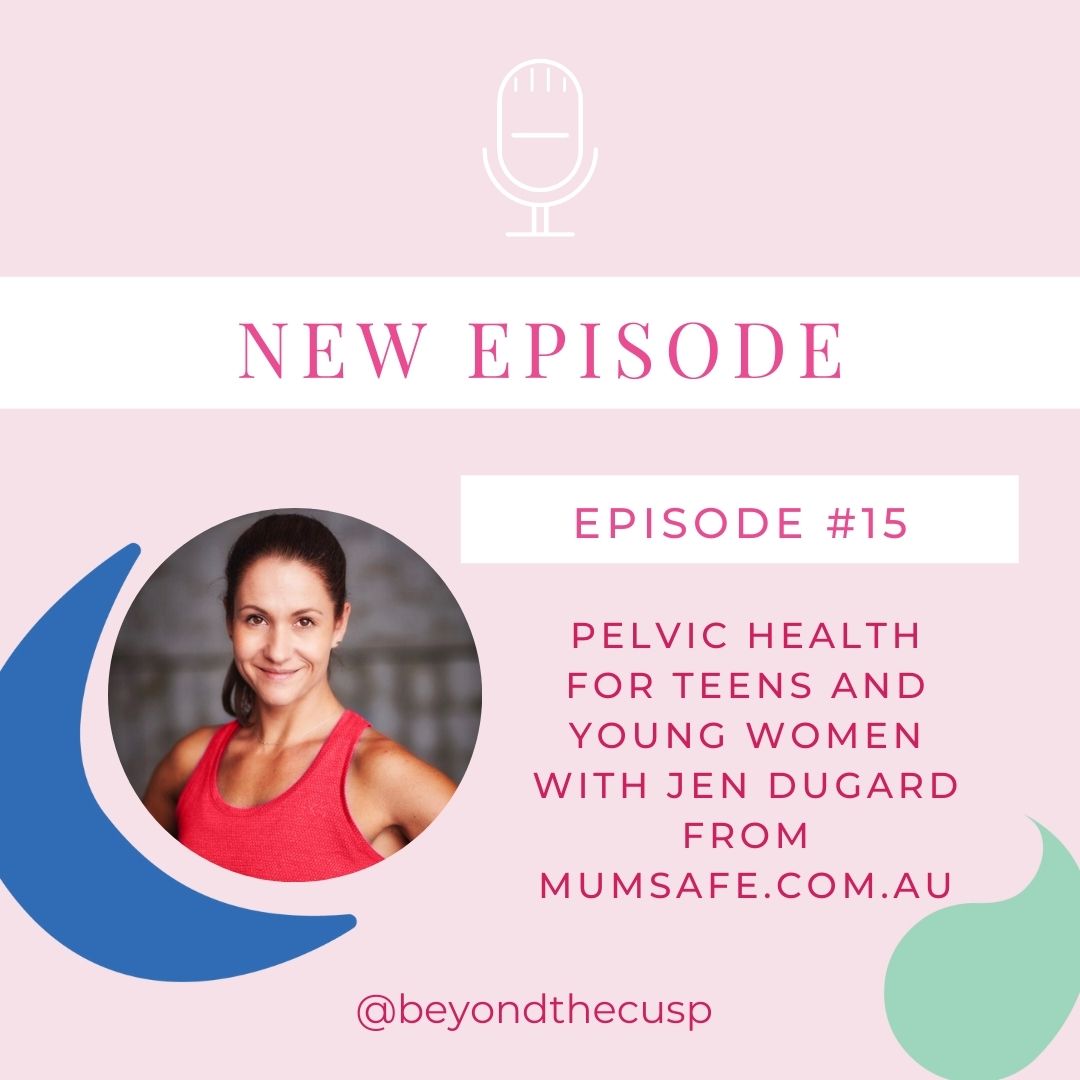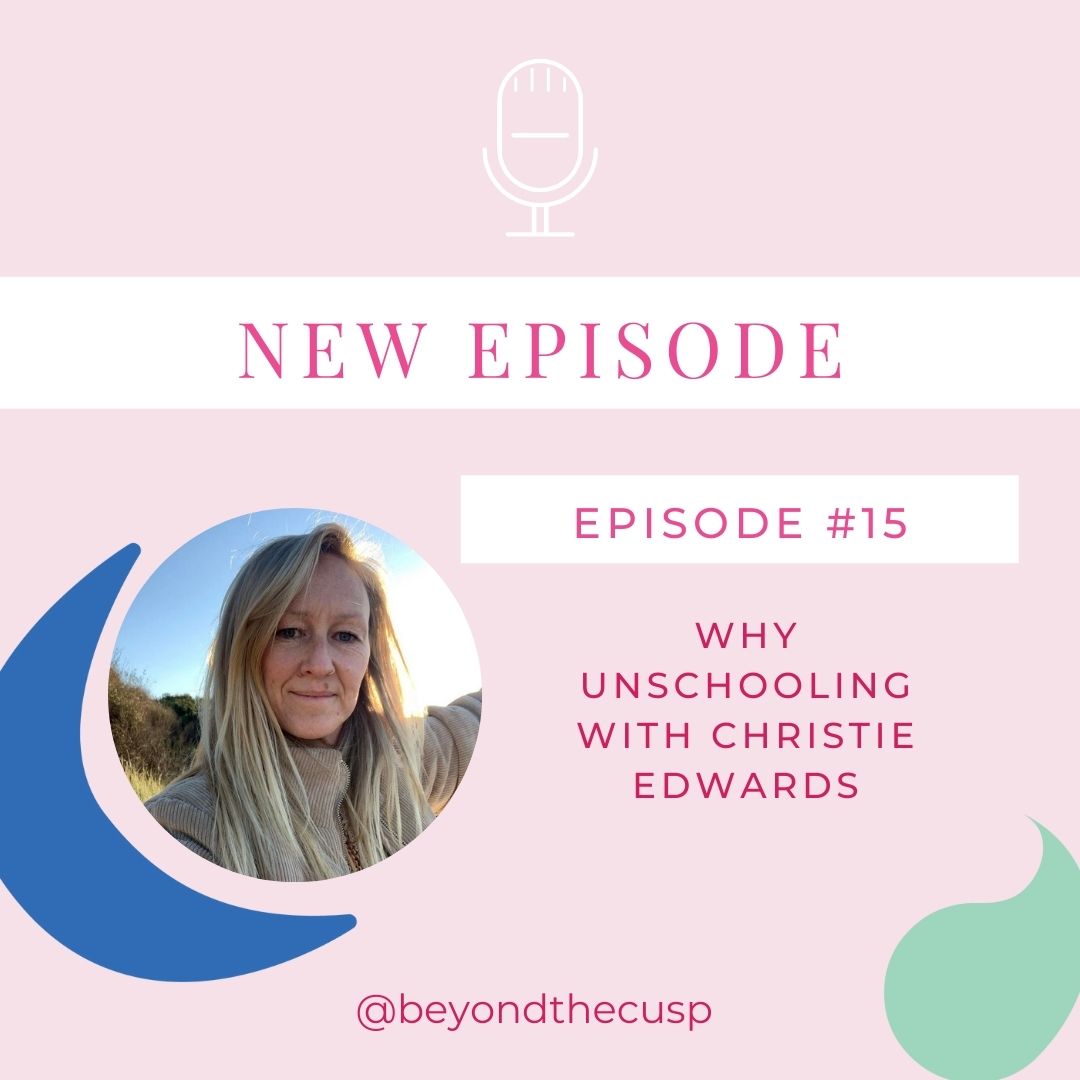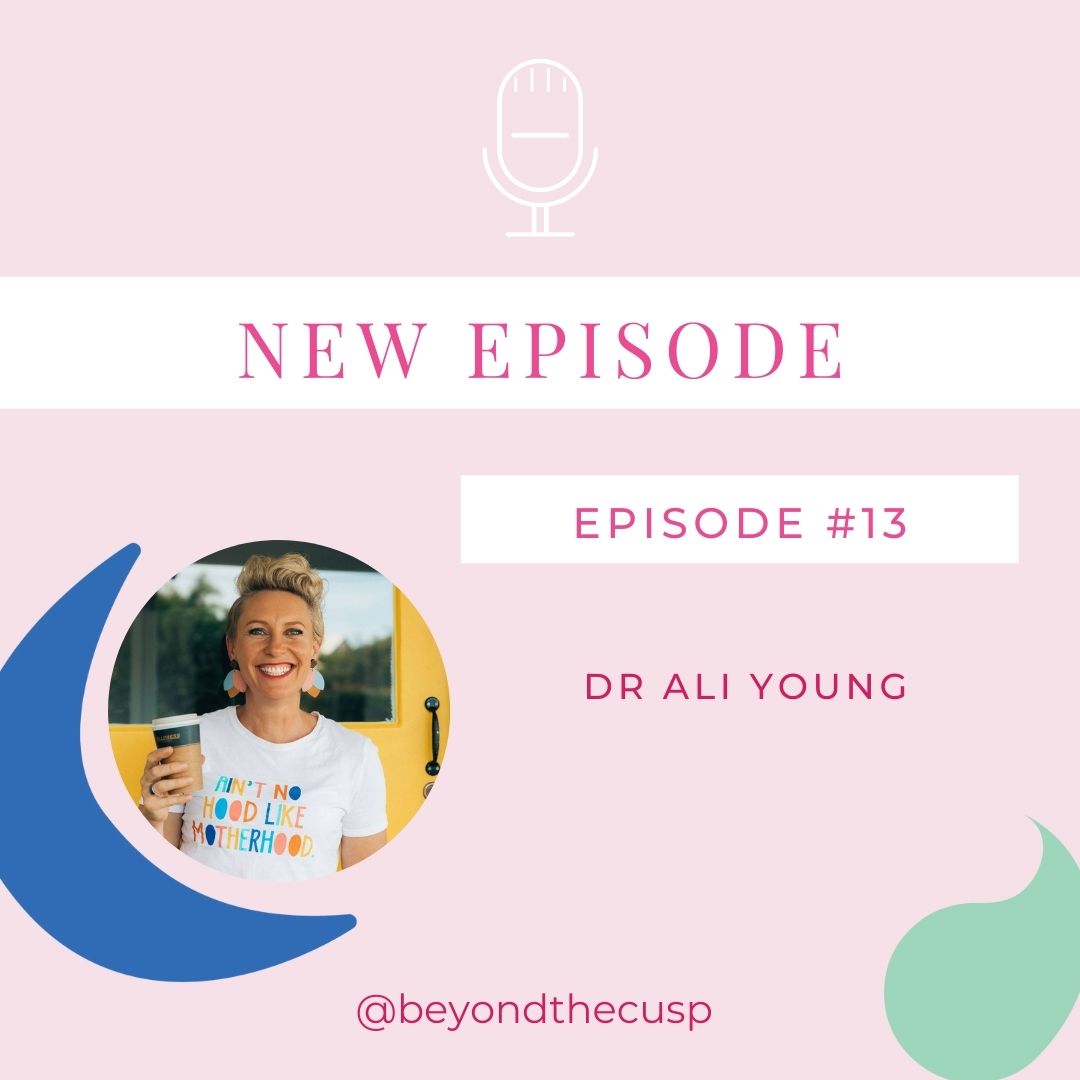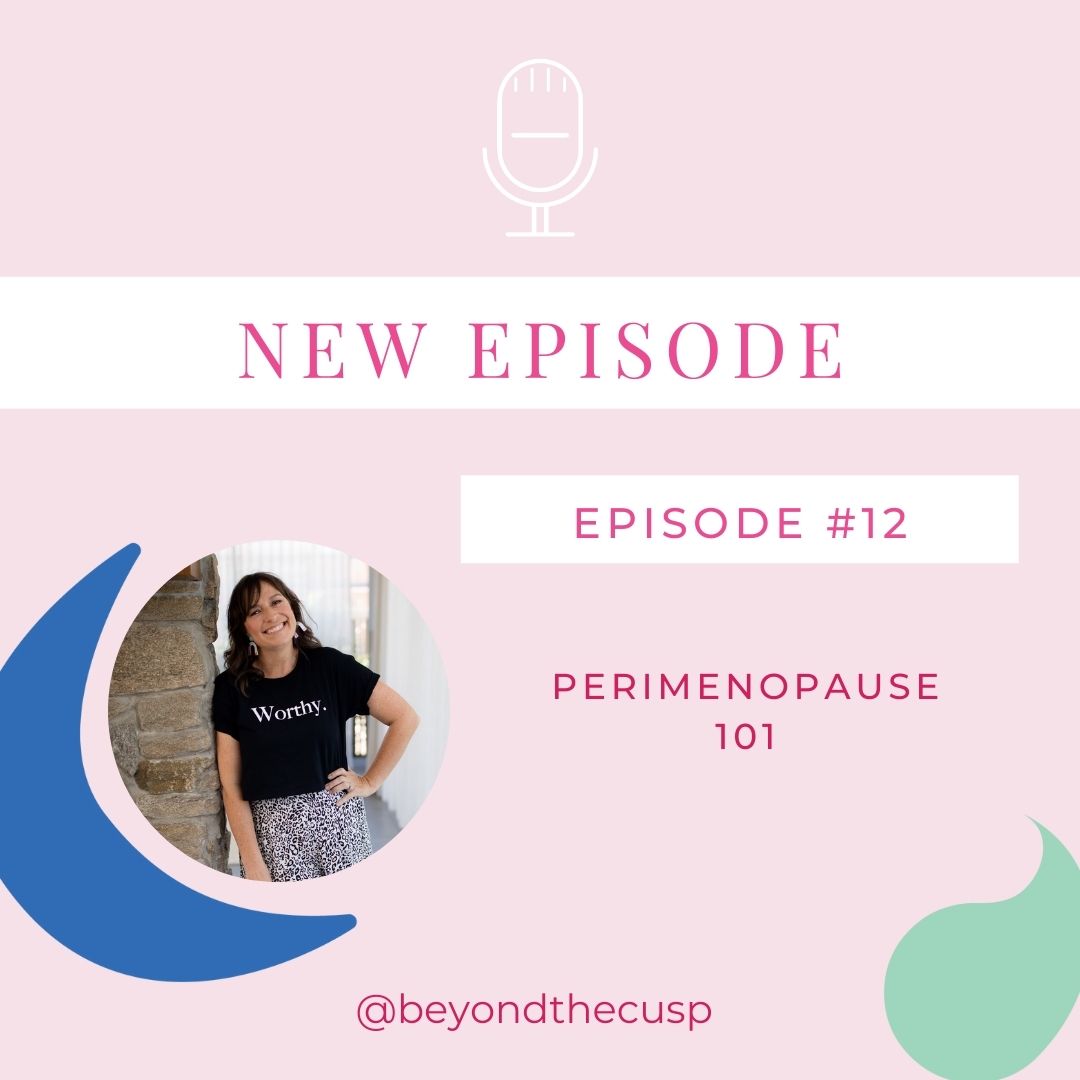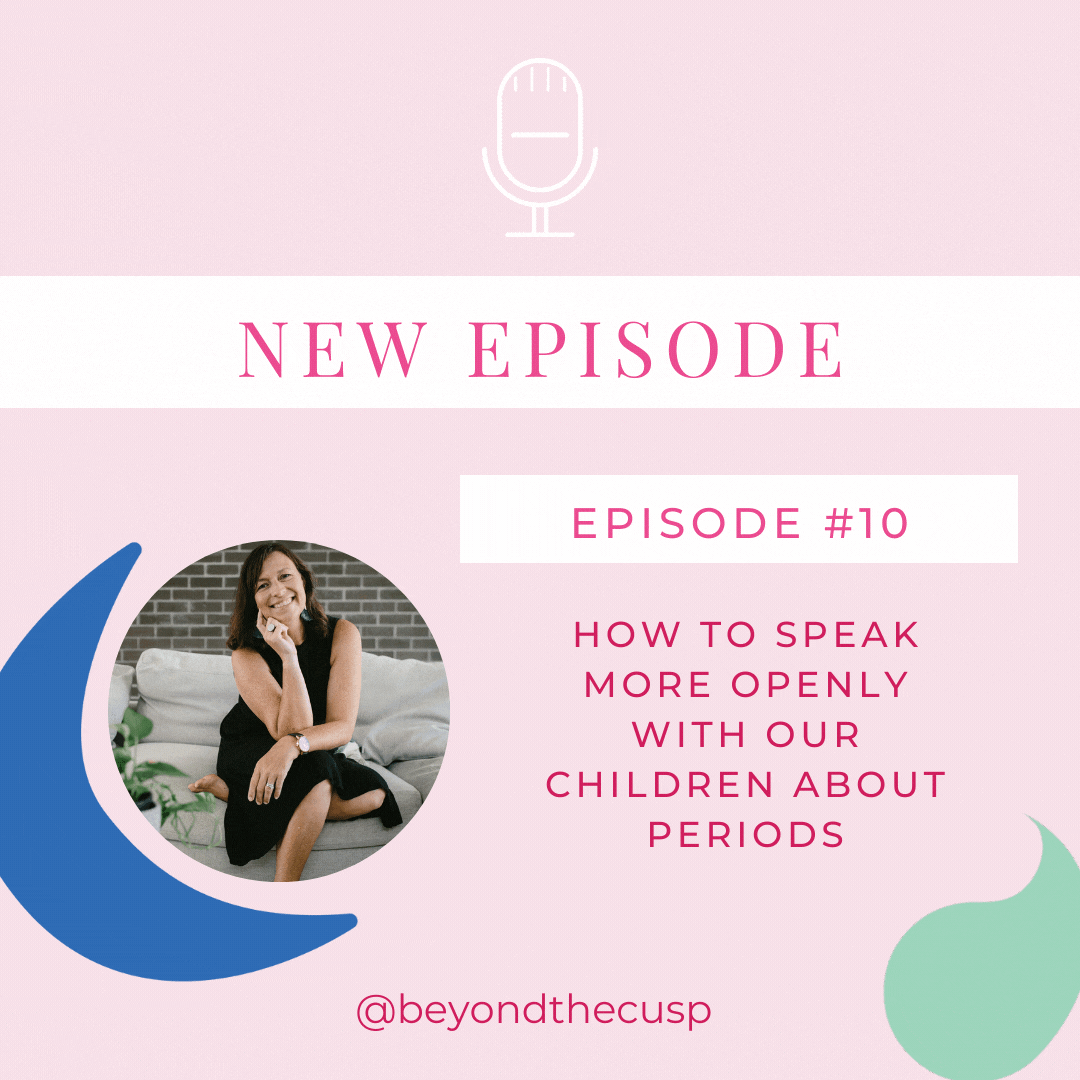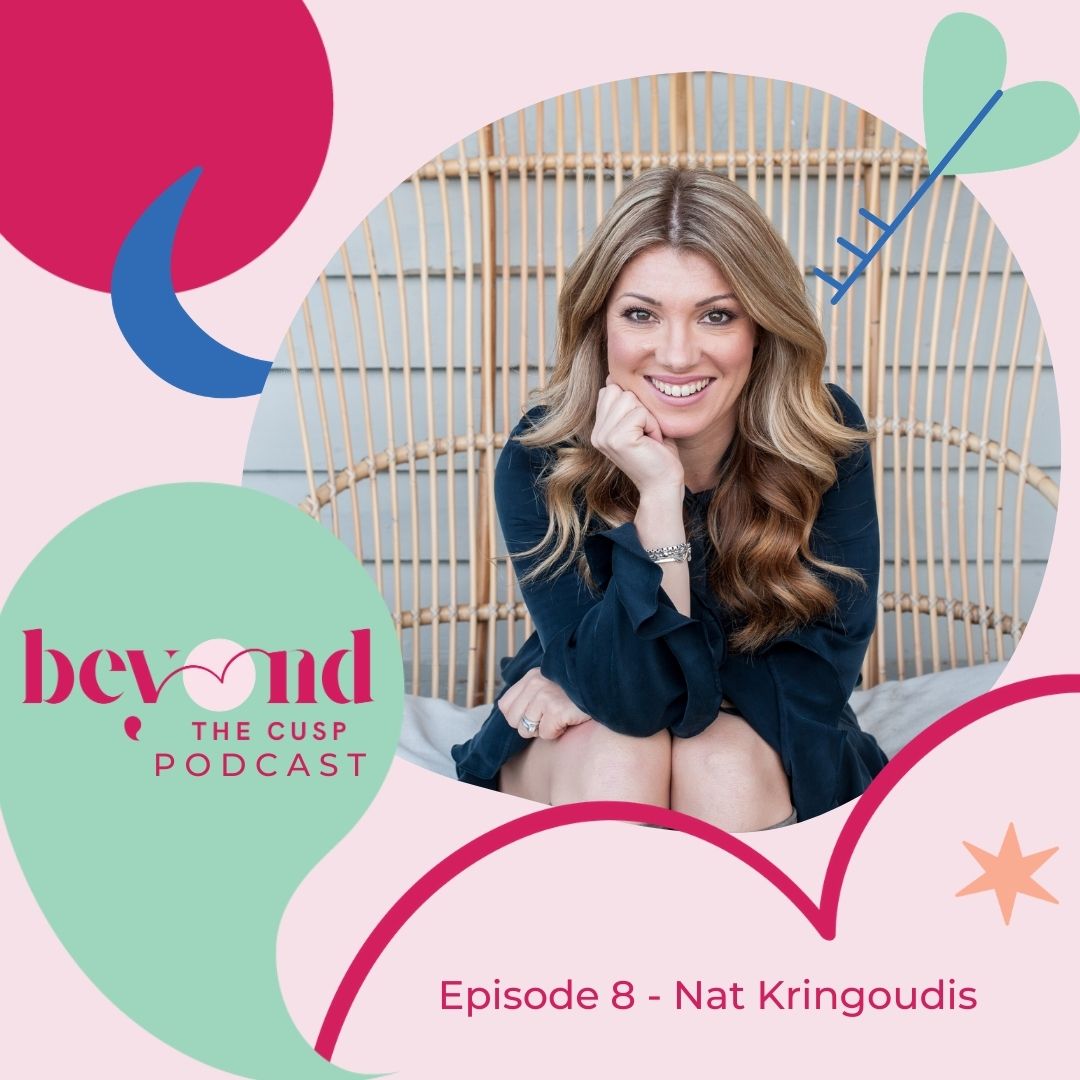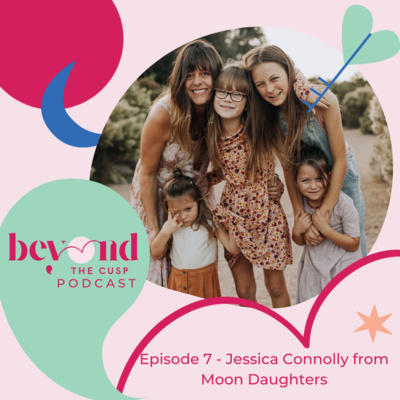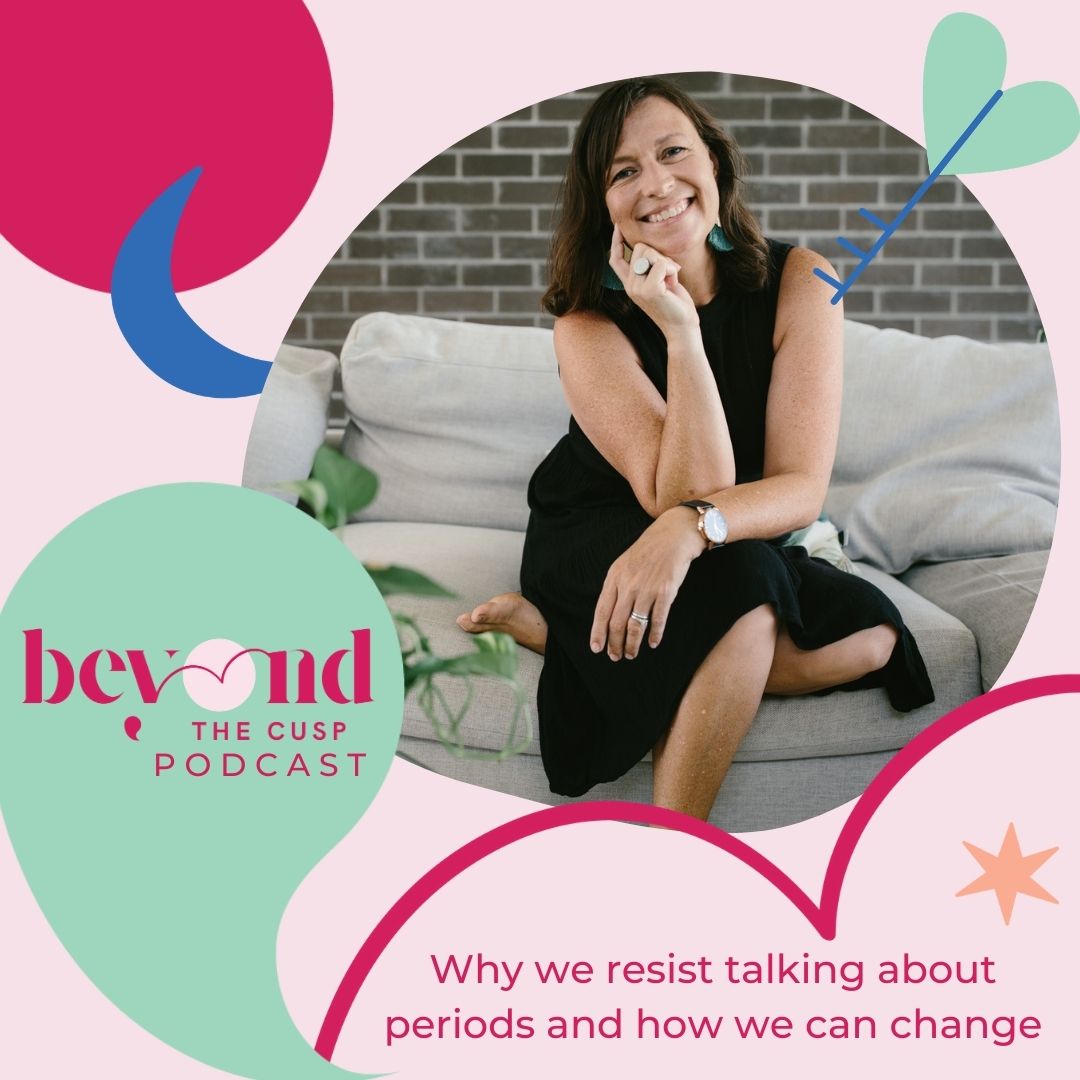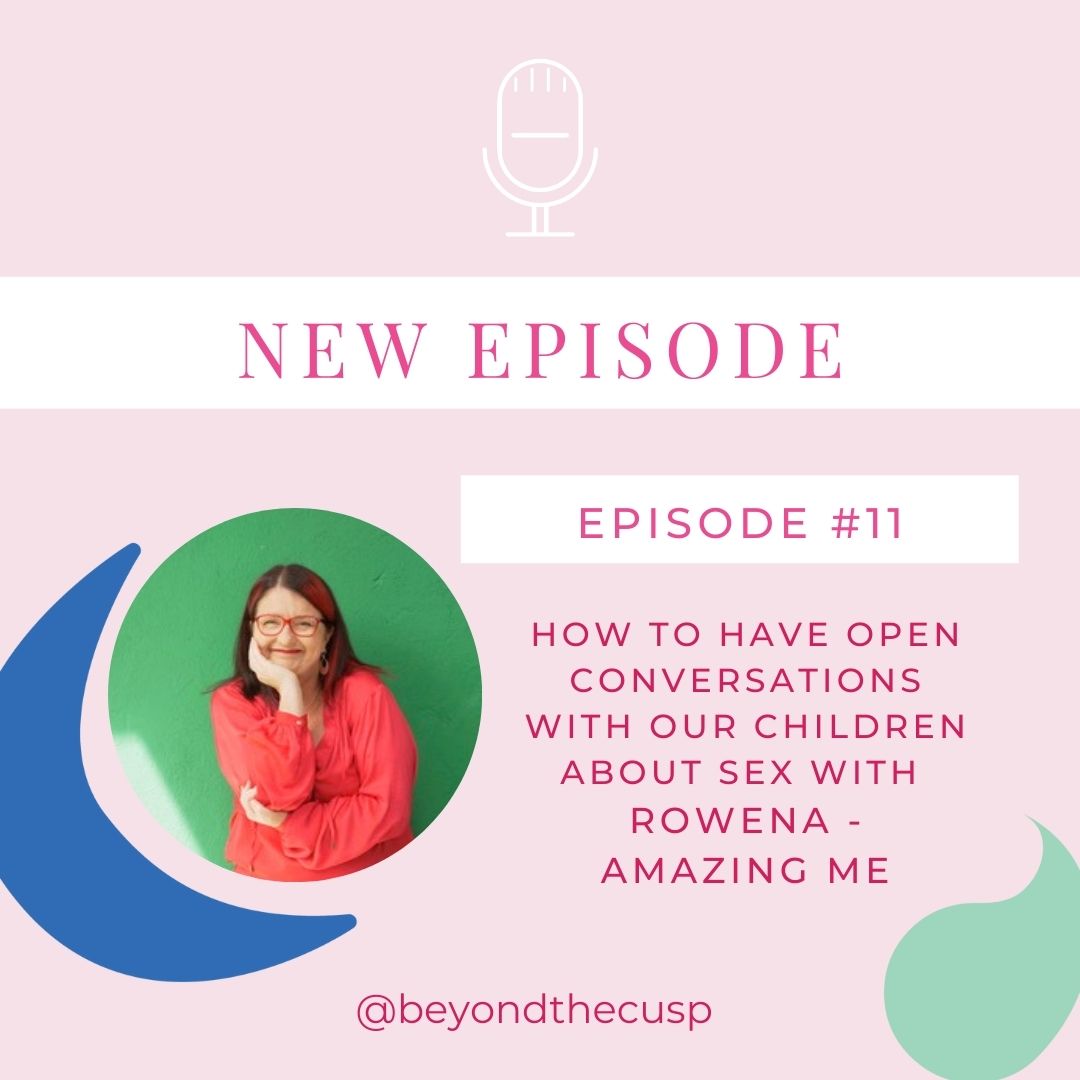
In this episode I talk with Rowena from Amazing Me. We talk about when to start having the conversations with our children about sex and what do we say. Dealing with our own shame when having those conversations and bringing in pleasure.
Connect with Rowena
Website: Amazing Me
Facebook: Amazing Me
Instagram: Amazing Me
Rowena’s online course – What’s the big deal about puberty?
Some of Rowena’s favourite books and authors:
Jayneen Sanders
Kaz Cooke – Girls Stuff
Fiona Katauskas – The Amazing true story of how babies are made
Holly-ann Martin – Matilda learns a valuable lesson
Cath Hakanson – The sex education answer book
Transcript
Milina: (00:03)
Hello Rowena. I’m so happy to have you on my podcast. I’m so excited for this, for this chat. Um, it’s been something that I’ve wanted to talk to you about for a long time, and it’s something that I get a lot of questions in my DMS about. So I’m often sending people your way, but I’m great to have this. I’m so excited to have this conversation with
Rowena: (00:25)
You today. Oh, thank you. It’s so great to be here. So thanks for having me really appreciate it.
Milina: (00:32)
So I’m, I’m starting off. So something that I always am trying to teach my children as well as practice myself is nourishing my body. So I would love to know what is the one thing you love to do to honor or nourish your own body?
Rowena: (00:48)
Oh, when I, um, thought about this question, I’m actually not used to doing that because when you run your own business, as you know, it can be really difficult long hours. I feel like I’m always working. So I had to take a step back and think, you know what? COVID has actually been really good for that for me, because every day I live near the beach every day I go for a walk and I’m reflecting more and also I’m taking baths. So things I do to just take time out, which I’m not good at to tell you the truth. So it’s, it’s a really good thing. It’s a really great thing. COVID for me, because I’ve lost 50% of my work and I’ve had time to actually reflect on my life and look after my body in that way. Yeah.
Milina: (01:43)
That’s good to hear that there’s positives out of this and that, like you said, I don’t think we’re ever taught to really look after our bodies in a way that makes us feel good. So it is a practice. And I even find that, you know, there are days that I do nothing and it adds up over the time when, you know, I start to struggle. So yeah, it is a practice to continue to do something nice for our bodies.
Rowena: (02:09)
That’s right. And I think this generation of kids coming through, uh, they are actually thinking about their bodies, not in a negative way with social media and everything, but also in a really positive way, you know, say, for example, in, in most schools now they’ve got a wellbeing team that looks after, you know, body, mind and heart of the teachers. So in a lot of work practices, they’ve got that. So, you know, a lot, a lot of younger kids are taught about that. And I think that’s a wonderful thing. Cause I was never taught about that. I just had this work ethic, you know, drummed into me. Yeah.
Milina: (02:51)
And the importance of listening to little cues that your body is giving you as well. Yeah.
Rowena: (02:56)
And I’ve been hearing those cues more and the more time I have to reflect on that and you know what, in all of our work, your work and my work, every single zoom that I do at the moment and every single classroom that I teach in, I always say to kids, listen to your body, your body will tell you when you’re exhausted, your body will tell you when you’re getting your periods or when you feel unsafe. And it’s all a part of looking after your own body, but also not just yourself, but being mindful of other people’s body signals too. And what they’re telling you through their body signals. So it’s all a part of wellbeing. It’s all connected. Connected. Yes. It’s like, we’re all connected.
Milina: (03:44)
That’s right. Yeah. So tell me a little bit about amazing me and how you got into this.
Rowena: (03:52)
Okay. So I’ve been running my business, amazing me. Um, and basically I called it amazing me 30 years ago when I started it, because I want to place value on everybody regardless of where you live or who you are or what shape you are or whatever you believe. Um, that’s my whole, um, mantra really. And also to have positive, open, ongoing, lifelong conversations about tough topics like sex consent, pornography, puberty relationships, all of these things that they’re all connected. So they’re 30 years ago when I was using overhead projectors. Hilarious. A lot of you wouldn’t even know what they are, they’re in antique shops. Um, so my kids, I’ve got three adult children now, 26, 23 and 21. So when they were at school, um, they, they had nothing really, we didn’t really talk about this stuff. And I got my period at the end of the fall up.
Rowena: (04:59)
Uh, I, I was scared. I had no idea what was happening to my body and I didn’t want my daughters to experience that. So it all stems back to a lot of us why we do what we do is because of our kids sometimes. And that’s why I started this business. And, um, I also taught though, so I was a teacher as well. So I’m primary school teacher and I was actually teaching up until three years ago as well. So amazingly, it was kind of my side hustle my business on the side that I did, um, not programs in about 50 schools at that stage three years ago. And now I’m up to over 150 schools and my husband is gorgeous. He encouraged me to leave because I was finding my work life balance, which I still do find really difficult, really busy, but it was impossible because teachers work. So the job never finishes. And so I had to kind of make a decision. But the thing that I love is that I’m still in schools. So I’m still understanding what is going on to a certain extent. And that’s what I love about what I do. I’ve still sort of got my finger on the pulse about what’s happening
Milina: (06:19)
And then work is so, so important. It really is, especially at the ages that you’re there, that you’re speaking to. So I was, um, doing a bit of research before chatting with you today. And I had my laptop on the couch with my daughter sitting next to me and your website was up and you’re on Rowena’s website page. It has a rolling script of, of words. And this is my 10 year old. She said, oh, what is she talking about? Because it has consent and sex and pornography. And I said, what are you referring to? And she said that word, it was Cornell Griffey. And I say, what do you know about that? And she said, yeah, she said a little bit a sip. She said, boy, she got it on your website on your page. I said, well, she teaches children like you about set about it, being about the safety around it. And she said, okay, and just carried on. But you know, they are so much more aware than we, what we realized that she could even just see that word and know it was something for her to be concerned about.
Rowena: (07:26)
Or have you ever had that conversation with her before?
Milina: (07:30)
We have to a degree we’ve had with my older two, um, we have to, uh, to a degree at what she feels she needs to know about at this point. Yep. Yep.
Rowena: (07:41)
Absolutely. And every family is different, right? Yes. I always say too. So I like to say whatever you believe and whoever you are, you can have open positive conversation.
Milina: (07:56)
And it was, I was quite surprised actually, the first time I had to have that conversation was my oldest daughter was in year six at the time. And she came home and said, what’s porn mum because boys at school were talking about it. And at this point we hadn’t and I was taken by complete surprise. Um, and she was saying, oh, the boys say they watch it. And the boys say they do this. And so you have to kind of have those conversations when, when they come up because,
Rowena: (08:28)
And also before they even come up, I think because, and I think we can be proactive about that. I think as soon as your child has access to the internet, you can be talking about them.
Milina: (08:42)
And this is where I find your, your content and your education. So, so important, especially to us as parents, because we are not aware half the time of what they’re, what they do and don’t
Rowena: (08:55)
Yes. And they all know different things. And I understand that, but you cannot protect your child anymore. You know, your child’s not in a bubble they’re in the world. And you know, my, my big quote of today that I would say is that two of my kids knew about sex when they were seven and still believed in Santa until they were 11. I did not put their innocence. I believe that I empowered them to be more innocent. And I think that often were really fearful of that, that we’re going to destroy their innocence. When in actual fact we are empowering them to be more innocent by actually talking about it. Another thing that I find really interesting is when I talk to parents, I and kids, I think that the earlier you start with the facts, the easier it will be. So lots of schools, they have me in year five or six. So when the kids are at 10 or 11 or 12 learning about puberty, but it’s not too late, it’s never too late, but a lot of them are going through it. Then it’s so much easier if I’m talking to you three or four year, four student about it, they aren’t actually experiencing it yet. That’s easier way before. So if we start these conversations in kindergarten, then I think it is just so much easier for every, it just becomes a natural and normal thing.
Milina: (10:23)
Yes. And they can recognize this in themselves when they are changing too. And they’re not so scared about it or embarrassed or humiliated when they’re going through things that they’re not aware there is normal for them. That’s exactly
Rowena: (10:36)
Right. And it’s not just when it comes to puberty, it’s pornography, it’s everything. So I think that the biggest fear that parents are, one of the biggest fears that parents have too, is that, you know, it’s too much information, but talking about sex education is not, you know, everyone says this, but it’s not just talking about sexual intercourse. It’s so much more than that. And the more that you understand as a parent, that it’s not just about that, that the more that you know, that it’s going to be a lifelong conversation, and you’re going to be talking about little bits about it. And it’s also modeling behavior. So modeling relationship behavior and things like that. So, yeah. Yeah. Well, that
Milina: (11:25)
Kind of leads onto my next question, which is one of the biggest questions I have in my, in my inbox is, um, when do we start to speak to our children about sex and what, what do we say,
Rowena: (11:37)
Oh my gosh, I could be here all day, but you’ve kind
Milina: (11:41)
Of touched on it a little bit.
Rowena: (11:44)
And you know, you know, the first thing that I always say to parents is good on you. They’re having a go and wanting to learn about this stuff. It’s not easy. It’s really difficult being a parent. And I’m still a parent and my kids are adults, but the world that your, that your kids are growing up in is a very different world to the way that you grew up in. So this attitude of there’ll be right mate, or, you know, it’s good enough for me. So it’s good enough for them to, it just doesn’t cut it anymore because it’s not the same information. We’re more aware of things, but the kids, the kids are accessing so much more information as you’ve told me, Milina already, you know, so it is tough, but you can do it regardless of if you’re really liberal or really conservative or right there in the middle, these tough conversations can really be had, and they need to be had more than ever earlier than ever, I think.
Rowena: (12:40)
Yeah. So as I said to you before, I think that it needs to start off by you thinking about, you know, what sex actually means to you. Um, and what messages you were given as a parent when you were growing up. Uh, was it a shame? Was it a taboo? Was it full of stigma? Did you even talk about it at all? I know that my parents didn’t know great parents, but we just didn’t talk about that stuff. I learned about peer. Like when I got my period, I didn’t tell my, I was ashamed. I stole pads from my mom’s cupboard. And in terms of sex, I knew about sex. When I got a book, my mum put a book on my bed when I was about nine, like was even way too late for way back then, you know? So, you know, how were you brought up and saying, nothing is giving an opinion.
Rowena: (13:36)
It’s making the subject taboo subject. So, you know, and I understand, as I said, it’s really difficult. You know, there’s so many of us that have been sexually abused or sexually assaulted. And that brings a whole lot of other things into the mixed about what we want to gets to know, you know, that we might have beliefs or religion or, you know, cultural things. And it all, it is all, it all has an impact of how we’re going to communicate that all of these topics to our kids. So what I always, I always say to parents, what messages did you get and how do you want to be different? How do you actually want to change the narrative? What do you want your kids to know basically what we want our kids to have really happy, sexually fulfilled, equal, equal relationships in the future. Don’t wait.
Rowena: (14:30)
You want to keep the that’s what we want. And we want them to be empowered to make wise and safe decisions in the future. So if you’re thinking about that now, how are you going to get there in an age appropriate way and age appropriate? I find that really difficult to that whole concept because every kid’s different disabilities, lots of kids are inquisitive. Some kids get their periods in you too. You know, some kids stumble across pornography when they’re four. So you’ve got to start the conversation then. So age appropriate, you know, it’s different for every single kid and kids need to don’t know different things at different ages. And you as a parent, know your child better than anybody else. And so that’s why it’s more important that you have the conversation in the context of your family’s beliefs as well. So what did you ask me and have that conversation while practicing what you preach? I think starting early, I think kids need to know about sexual intercourse by the age of six and seven. I just do as a fact, but if they’re not ready for that, I think you start off by early on talking about the facts that it takes an and often that is often a kids curious about babies.
Rowena: (15:55)
How did the baby get in inside? Or how does it, um, what it takes to make a baby? So you start with an egg and a sperm. You always start to, I find that I asked them, what do you know about that? So putting the conversation back onto them, because often, uh, uh, uh, if, if a kid asks, well, what is sex or they see it, they, they might hear something on the radio and they’re talking about sex or what your daughter did about pornography. And then you, as you did to them, you said, well, what do you know about that? Because often what you’re telling them actually, isn’t the information that they’re actually asking for. Okay. And also you might be feeling a certain way and just go, oh my gosh, that’s disgusting. I’m never going to ask you a game, stop by asking them what they know about it.
Rowena: (16:47)
And you know, maybe you are pregnant and your child’s asked about the baby and you say, it takes a sperm and an egg to make a baby. So I go, oh, great. And that’s all they need to know at that point. And then they say, well, how does the egg and the spam get to get up? And you know, you, and then you talk about it. You actually tell them. And I think that you can, okay, you can tell them about sexual intercourse in a really factual way. Um, and you know why that actually makes them want to ask you more questions, open ended questions. Like, that’s a great question. I’m proud of you for saying that. What do you know about that? Tell me how you feel about that. Um, it sounds really gross, isn’t it? But it’s not for kids grownups. You don’t even need to worry about, about it now, but you just need to know how babies are made and also IVF.
Rowena: (17:38)
You know, there’s a lot of other things that we need to bring into the equation as well. So being open and honest is really important, not talking about the stalk and about, you know, you’re being, they were made in a dish, actually talking about the reality of it. Because if that, if even it, even though I know it’s awkward sometimes, and you might be in a shopping center when it’s happening. So you might have to say, you know what, I’m going to tell you later. And I really want to talk about this because this is really important. And thank you so much for asking me, but there’s a lot of people around and it’s just not the right time because it’s a really private conversation and then bring it up later on. They can be proactive in this all the time. Um, so in terms of consent, you know, that’s all a part of talking about sex.
Rowena: (18:25)
So you need to model consent, give your child choices, give them boundaries, honor their feelings. Um, talk about body safety, talk about private parts. Uh, all of these things have to do with relationships later on and sexual relationships later on as well. So, uh, you know, the conversations about families and equality and gender, regardless of masturbation pleasure, all of those things can actually start at a really young age and not even talk about sexual intercourse. Okay. So I think, um, you know, there’s a lot of things that we can talk about today, but encouraging dialogue is really, really important, being positive, um, being respectful of your child and not slamming down the conversation. Um, regardless of what the question is, because you know, some of the questions are hilarious and like, you know, are asked at the most inappropriate terracing times, but you say to a kid, oh my goodness, that rose don’t ever ask me that again, they probably won’t.
Rowena: (19:40)
And then they’ll go and ask Google, find out about pornography. And you know what often parents say, I don’t know enough information. I can’t, I can’t answer these questions. You know what? You start small. And then you add on to the conversation. And if you don’t know the answer, say, guess what? I don’t know that answer. And I’m feeling really embarrassed myself about this because we never talked about this. And this is quite funny. I’m going to go and find out what the answer is, and I’m going to come back to you because well, let’s find out together. And another thing is books. Oh my gosh, there are so many fabulous books out there about all of these topics. I’ve got over 290 of them on my bookshelf, about a hundred and something on my website. I’m still putting them on my websites because it’s taking me forever. And it’s a new website, but you might like to have a look at those. They’re a great place to start the conversation. If
Milina: (20:35)
You, um, if you follow Rowena on, um, Instagram, she often has her book of the day or book of the week. So if you she’s always got a ton of books that are great resources to use.
Rowena: (20:48)
Yeah. So I think it’s all about, uh, yeah, I do. And you know, not all of those books are gonna suit you and your family say you have a, uh, uh, uh, religious belief, but you can always add that. Well, you, that don’t talk about masturbation or a puberty book talks about masturbation for boys and not for girls. Well, that’s not right. Like talk, that’s not right. Well, I don’t believe in any way, but you know, we all believe different things. So it’s important that we actually include them. No book is going to suit your family perfectly. Right. That’s what I’m saying. The only way that your kid’s going to know about what you believe is actually if you model it and if you talk about it
Milina: (21:32)
And I love what you said at the start to thinking about what we experienced as excuse me, as, um, children and how we want to make that different and how that looks like in our own individual families. Um, which I think is really, really important. And I think there’s
Rowena: (21:50)
A lot of help out there too. You know, there’s a lot of information out there and you can get a lot of support and a lot of help. And I think it’s really important to just a few more things that you just stay calm. I’m not a calm person at all. And I wasn’t calm. I made so many mistakes and I knew like this is like talking about what I had for breakfast, but I still made so many mistakes. And I had had to ask my kids for forgiveness, you know, so many times and say, sorry, um, it’s a lifelong repeated conversation, which is not how we were brought up by that. There’s a lot of room if you make room for this conversation.
Milina: (22:33)
Yeah. And I pair it the same thing as about within periods. We have to have constant conversations because the way our periods affect us throughout our whole menstruating life, even posts is different. So we’re learning new things. We are, um, you know, discovering new things. Our body behaves in different ways at certain times. And it’ll be the same with, uh, with relationships and with sex.
Rowena: (23:00)
And that’s like us, exactly what you said. I mean, I’m learning so much from you too. We can all learn from each other, which is a wonderful thing. And that’s the wonderful thing about all this information, you know, when in 1975, there was that book, well, where do babies come from? I’ve gotten the author, but you know, it’s a really funny book. It’s hilarious. And it’s so great. I mean, of things missing from it, but you know, and how babies are made and you know, that book anyway, or that book, there was just the one book that everybody, and now there’s so many of them, you know, there’s so much information that sometimes it can be overwhelming for all of us, but just start small.
Milina: (23:41)
I actually had that book with my children. We’ve got that book in the house because my sister was staying with us for a little while and she found it at an op shop and she bought it, bought it post. So we’ve actually used that book as one of the very first books that we looked at. I mean, you know, there’s some changes, but the basics are still very
Rowena: (24:02)
Relevant. I mean, in the puberty book, I remember that they don’t really talk much about emotional changes, which is really interesting. They don’t talk about IVF and the, um, how babies were made either. But you know what? You can add that. Yes,
Milina: (24:17)
Yes, exactly. Yes, that’s right.
Rowena: (24:21)
I read that book too,
Milina: (24:22)
Right. Yeah. And it’s still available in the libraries and a bookshops and, oh, that’s so helpful. So very helpful. Um, so we talked, you were mentioning about masturbation and particularly with boys and girls and not, not, um, having references to girls and certain books and pleasure for women was something that was never really spoken about when, when we were younger and probably isn’t today either. But so when do we start initiating that conversation about, about pleasure of particularly for daughters?
Rowena: (24:59)
Yeah. Okay. It’s a great question. Well, I, and this is something that I’ve had to really change too over the years. Um, and when I show a picture of genitals, when I’m doing my talks, I talk about the cliteracy and I, cause it’s the only part of our body that is there for pleasure. Did you know that? So I talk about the fact that, that it’s amazing. It’s amazing part of our body and it’s there for a reason and a purpose. And that pers purpose is to give us pleasure. And for the older kids pleasure, meaning that it’s the one of the most sensitive parts of your body. And it feels nice to touch it with young kids. That’s what I say. I don’t even, I mean, it depends on the school, but I don’t even always say masturbation. I just said, it feels really nice to touch it.
Rowena: (25:45)
Some people liked and some people don’t, it’s up to you because the clearest and I talk about how amazing it is that it looks like a wishbone that’s about 12 centimeters long, and that it actually becomes a rectal about 17 centimeters when it’s on aroused. And it’s got about 16,000 nerve endings on it. And a penis only has 8,000 and they’re like, wow, that’s amazing. So you don’t need to say all that, but you just need to just refer to it, start by talking about, you know, the Volvo, the right names of your body parts and the penis and the, and the, you know, the scrotum and the right names. And you know what, just above the whole, whether we comes out, there’s something called the clearest. And that’s an amazing part of our body too. And it feels really nice to talk jet for young kid.
Rowena: (26:34)
Just refer to it, just talk about it, normalize conversations about it. And then later on, never shame a child when they’re, when they’re touching their, but, you know, talk to your child about the appropriate place to do it. Okay. So just, you know, you can say, oh, that’s, you know, that’s a, that’s a part of our body that feels really nice to touch it. Um, or most of the time, I’m not most of the time sometimes when they’re young, they’re doing it to sooth or they’re doing it because they’re anxious to say, you know what? You can do that. I’m really happy for you to be doing that. It’s normal, but just make sure you do it in private. Okay. Okay. In terms of pleasure, I would also validate your child’s feelings. Always teach them to be able to express how they feel about things and that’s good feelings, and that’s also bad feelings too, so that they can actually verbalize how they feel relationships later on so they can tell their partner that feels great when you touch my glitter, as that feels awesome.
Rowena: (27:35)
I still, I still made a lot of parents that don’t know where the cliteracy is. Yeah. Wow. But it is a part, I don’t find many parents that don’t know that there are three holes, you know, so understanding and educating yourself is a really big part of it too. And just normalizing conversations, teach them about it when they’re young, teach them to, to when they feel nice that when you touch them and they go, oh, that feels really, really nice because you have to ask for consent when you touch them or rub their back or, and they go, oh, that feels so good. And go, yeah, it does. Doesn’t it, it feels really nice when something that someone does that. So never shine them up, put them down for the way that they feel, teach them also how to, how to rate other people’s feelings of pleasure.
Rowena: (28:23)
So facial expressions, like that person feels really good because they’re making that facial expression or they’re going, oh, wow. Well, they’re saying something that feels so nice. Um, validate that because in their sexual relationships later on, they need to validate their partner’s feelings and know that it’s not just about them getting pleasure. It’s actually about giving pleasure to so receiving and giving. I think parents are scared of talking about pleasure, like a lot of other things, because they think that their child is just going to go out and have sex. Right. That’s what I, you know, that’s kind of, and also we, we were brought up, we were kind of bought up to think, to be shamed ashamed of it, but let’s face it most of the time. That’s why people have sex feels really nice. And to connect two people together in the closest way that you can be connected and it feels great and it should feel great for both of them, not just for one of them. And so we start talking about pleasure with boys from a really young age and how girls can feel pleasure to how everyone can feel, blank, pleasure, whatever gender you are and normalizing and modeling that behavior is just saying, yeah, that feels great. And you know, girls have a clearest and they can feel great too. Like it’s just a fact
Milina: (29:46)
About it. So again, it really comes back to normalizing conversations and making this, making them feel comfortable to accept what we’re offering them. Um, and also be open to asking.
Rowena: (30:01)
Yes. So they say what’s masturbation, tell them, touching your private parts, um, because it feels really nice and it’s meant to feel really nice in that part of your body does feel really nice when you do touch it. And then, you know, even talking about an orgasm and what an orgasm is. And I mean, probably not for young kids, you don’t need to go into that because you know, there’s too much other information anyway, but just feel, and they don’t orgasm. So, you know, but it can feel really nice for young kids to touch their private parts too. It’s just because of the nerve endings. And, but when they go through puberty, it’s more, more important than ever that we talk about this, but it’s harder to talk about this going through puberty. If you haven’t even started the conversation about pleasure beforehand, if it’s a fact in your household that you talk about, even if you, I have a little few laughs about it, they know that later on it’s normal and natural. That’s what you believe.
Milina: (31:01)
Yes. And like you said earlier, no conversation is an opinion as well.
Rowena: (31:07)
Yeah, that’s right. It’s not either. You said he kids, you can always ask me about masturbation. You know, what has asked me about sex? You can always ask me about pornography and I will answer your questions as best I can. And I’ll be really proud of you for asking me instead of, oh my God. Where did you hear that from? That’s disgusting. Yes, exactly. Yeah. So,
Milina: (31:35)
So what does a parent do if they have experienced a lot of shame or even trauma around, um, a sexual experience or, um, even just the way they were brought up. So it might be a religious background and there was a lot of shame around things like that. How are they best to move forward in a way that feels better for them in having these conversations?
Rowena: (31:57)
Yeah. And as I said, it’s really tough. And you know, I, I was sexually abused too. And I, it just, it, the whole topic was really difficult for me. And, um, I was brought up, my parents were amazing and they modeled a really healthy relationship. Um, but they didn’t talk about this stuff. So even though it wasn’t shameful, it kind of became shameful because they didn’t talk about it and it was a taboo subject that’s for sure. Um, so I think that recognizing that is the first start, uh, recognizing that it’s really difficult. I’m not a counselor. Maybe you need counseling, but you need to recognize that even though you feel this way, or this has happened to you, it’s really important that you still talk about it with your kid, I think. And how do you get over that shame? I think the first conversation is often modest.
Rowena: (33:01)
Uh, but those conversations are the best remembering what sex actually is starting at the very beginning, talking about what the right names of private parts are, what private and public actually means. Talking about bodily, autonomy, and boundaries, all of those things are a part of sex education. So being kind to yourself, getting help, getting educated, telling your child that you don’t know all the answers that you human is a great start, but I think maybe even if you can even go further than that is actually having a go-to sentence. So when they actually ask you something, rather than having a panic attack or, you know, getting really, really uptight about it, just saying, that’s a great question. Thank you for asking me. And then while you’re doing that, taking a big, deep breath and trying to remain calm, uh, rather than just shutting down the conversation straight away.
Rowena: (34:02)
And if you feel, feel ashamed saying, that’s a great question, or I need to come back to you on that. And it’s a great question, or let’s read a book together about that. Um, I’ve got a book you, so pre-buy a book you can even practice conversations in front of the mirror. So if you can’t even say the word penis or vulva or genitals, say it 10 times in front of the mirror get used to your you’re you saying it? What, how do you feel about sex? What do you want your kids to know? Write it down, journal it, answer it in your head. What do you think when they say to you how a baby’s made, how would you answer that question? And, you know, there’s so many books and stuff on the internet to help you to know the actual facts about it and the stages of when and watch what’s age appropriate.
Rowena: (34:56)
Should I have got a blog because I had got a blog release every two weeks. And one of the, my blogs is about, you know, what age is normal, knowing what the sexual stages of development are, so that, you know, what is normal and what’s not normal child. So talking about reading up yourself and finding out bad information will empower you and give you more confidence to be able to do it in an open way and in an open way, doesn’t mean that you need to know all the answer or you’ve got it all together. Cause we haven’t, we make mistakes, having a laugh at yourself.
Milina: (35:40)
And I, I find too with, um, a lot of the mums that come through the workshops is that their experience, their first period, hasn’t always been a positive experience. And because they don’t want to, um, set their daughter up on with a similar kind of experience at this, why are they bringing them to the workshops? But they’re also in a way, um, dealing with their own shame or their own trauma with their experience, but they don’t realize that that’s what it is until it, until it actually comes up that, um, they might have been triggered by a certain experience or, um, so again, just talking about it and bringing things, things to light helps them process as an adult, as a parent process, things that they might not have even been aware of before.
Rowena: (36:35)
And isn’t that wonderful, the wonderful thing, you know, that we can actually look at stories and I’m writing stories and you know, some of those parents, and I’m always telling my kids and all of the kids, every, every period session I do on zoom. And when I go into classrooms, I always say I got my periods and I had no idea what was happening to my body. I didn’t even know about sex. My parents didn’t even talk to me about it. So I had no idea about it. And so that meant, I was always curious and wondering, and I had no one to ask and I felt like I, I couldn’t ask that question. And so the more story you can actually start as well, breaking down the conversations with your child by saying, look, can I tell you a story about when I went through puberty and what happened to me, or can I tell you how you were made and how you were born? It’s just a wonderful thing. It’s a wonderful story. And I I’d love to tell you about it or read a book about how babies are made and then, you know, say, do you want to know how you are made? It’s a wonderful thing. So being positive is really a good thing. If you’re feeling anxious, you kind of need, if I could a bit and try and remain calm and put strategies in place so that you can actually keep the conversation going,
Milina: (38:01)
Yes, I’m big on stories as well. Sharing stories,
Rowena: (38:06)
Same page as your partner too. If you do have a partner it’s really important. So talk about this with them. And if they’re not open to it, then, you know, having a discussion with them about being open to it because I’ve made lots of parents who both believe in different things and one might be really, really not wanting to talk at all about it. And the other one really wants to, so that’s a really difficult place to start as well. So having that first discussion with them is a really good idea too. I find the same. Yeah, same as well.
Milina: (38:36)
Yeah. Oh, that’s so, so helpful. Thank you. Um, and just one final question for you today. Rowena is what book or resource do you wish you had as a team that you can recommend for us to have on our books? Bookshelves? I know you’ve got over 200 of them.
Rowena: (38:58)
I think about that. It’s a very, very difficult for me to answer that question. I’ll
Milina: (39:04)
Just point a point, everyone, to your list of books,
Rowena: (39:08)
Books for you, for parents and for kids. Cause I’ve got lots of parent books as well. Um, but you know, the resource that I actually wish I had, I wish I had a parent. I wish I had a person and a mentor. I wish I had someone in my life that I could have just talked to. And that’s you. That’s a parent. That’s I wish I had you because it just would have made everything so much easier for me. It’s still so complicated, but it would have been so much easier if I’d have had this person to ask questions to. So in terms of books, I just thought maybe
Milina: (39:45)
[inaudible] is, is kind of mind blowing in a way. Yeah. You know, we, we do have it all within us to share the information
Rowena: (39:57)
And you know, it does take a village to raise a child and your child’s not always going to want to talk to you. So they need mentors. And I find that there’s less mentors around now, aunties get on calls, get people that believe in the same things as you try. You know, there’s been a whole lot of stuff, you know, about consent and about raising our awareness about gender, about pornography. It’s all a wonderful thing, but it does start with homes and families, um, more than ever more than ever because all of this stuff’s going on and the objectification of women and gender inequality and all of these things, it starts with you being open to that. But I just thought that I’d highlight because I’m a nosy. I just thought I’d highlight a few books from Ozzy’s because you know what? There’s some great books out there by Ozzies.
Rowena: (40:52)
And one of my favorite authors is Jane James Sanders. Who’s fabulous. She’s just, she’s written so many books and she’s just written all of these books for young kids. They’re like chats about consent, early warning signs about secrets and surprises. Everyone is equal, but she’s got so many different books out there educate to empower. Another one is Kaz cook. She’s a legend. Another one is Fiona. I can’t even pronounce her last name. This is a bad hat babies of my, another one is one of my favorite, oh, I love it to paste this Holly and Martin. And she runs safe for kids because she’s got an Instagram handle and the Facebook page as well. Um, and talks about pornography and other things too, and being safe, body safety last but not least. You might’ve heard of pat, pat.
Rowena: (41:48)
Amazing. So she’s got lots and lots and lots of different books. So many for parents and kids. She’s got a Facebook page. She loves books like I do. And she’s probably got more than me on her bookshelf, you know? And she’s written a little, whole lot of books I’ve written the course. So tell us quickly about that. But, um, yes. So it’s a course for parents and kids, although preteens, although for nine to 12, but even younger, if, you know, you’re open to that. Uh, but it’s, it’s a course it’s four $59, but you can get it for $20 off at the moment. So for $39 and that’s a bargain because of course with a whole lot of videos and talking and cartoons, so it’s really engaging. And you can actually, um, talk to your child about questions that are at the end of each section, but there’s two parts to it. So that’s my puberty course. So it’s $39. Um, so you can go online and get that. Okay. Yeah. And I’ll have all the links for both. And also my website has a whole lot of downloads and you can follow my blog.
Milina: (43:03)
Perfect. Thanks. So many amazing resources there. And um, yeah, if you don’t already follow Rowena on Instagram, because she’s always got a lot of fun, a lot of fun posts, a lot of real questions, which I think are fantastic. So these are questions that she’s asked by some of the students that she has in her, um, school, uh, courses and yeah, she’s bright and fabulous. And I, and I love your posts. So thank you again for coming and chatting with me.
Rowena: (43:36)
I’ve Alyssa got a Facebook group too. Oh, okay. Facebook
Milina: (43:40)
Group. So this is, so parents can come and ask questions and that kind of thing absolutely are perfect. So I’ll have links to that too.
Rowena: (43:48)
Yep. Brilliant. Thank you so much. I love what you do as well. Fantastic. And make sure you go over to Molina’s um, social media handles as well. Cause they’re fabulous.
Milina: (44:07)
Yeah. We’re all changing the, um, changing the ways aren’t we? The change, the narrative and
Rowena: (44:13)
It’s all about awareness. It is. It is and conversations. That’s right.
Milina: (44:19)
Yes. Thank you so much for what, you
Rowena: (44:21)
Know, thank you so much for having me. I really appreciate it. Bye.
